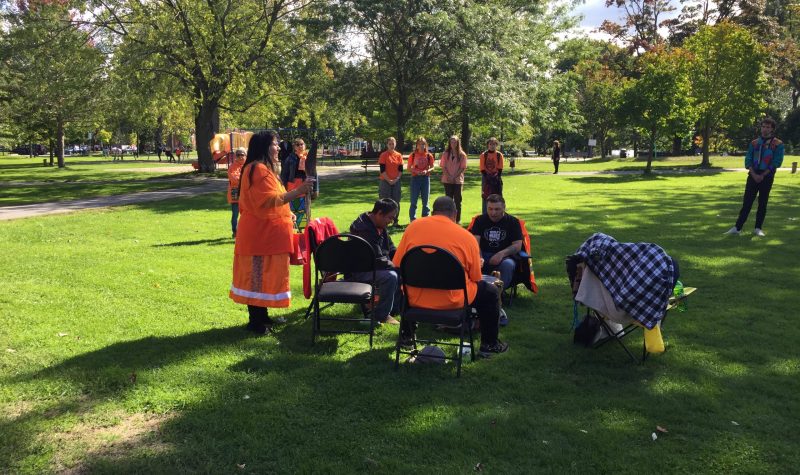A sacred fire at City Park in Kingston was one of many across the city to mark National Truth and Reconciliation Day. The event began with a smudging ritual followed by the offering of tobacco. Brodrick Gabriel of the Lil’wat nation in Mount Currie, British Columbia was the first to share his experience.
“A lot of my family went through the residential school, but for me and my nine brothers we weren’t allowed to go because the choice was you did jail time or your kids went to the schools. My dad did six and a half years jail time for us not going to the school….When the orange bus would come for the kids, he said I got to get ready and he was gone for 3 months per child…that was still happening in the 50’s and 60’s,” says Gabriel.
Aboriginal Outreach Rural Service Worker with Kingston Interval House Lorie Young shared that she is a residential school survivor.
“It was a great wrong, a great injustice, it’s genocide, oppression, and it’s a violent act. Many people participated in that great wrong, some thought it was a good thing, being stripped of your people, your culture, your spirituality and trying to find out who you are as a person…Some of us are adopted into families that are just as abusive as the situation that they came from and that’s very sad and disheartening. As we walk forward through this path of enlightenment with each other we want to create awareness and bring people together so it doesn’t happen again," says Young.
Environmental Biology student at Queen’s University Sierra Robinson says she wants to take time to recognize the colonialism that is still going on in our society.
“Sharing space with people, thinking how colonialism has affected indigenous people and the intergenerational trauma, we as settlers need to put in the every day work to reconcile. Having this day and people recognizing it for the second time, is a step in the right direction,” says Robinson.
Listen to the full CFRC interview with Brodrick Gabriel below:


